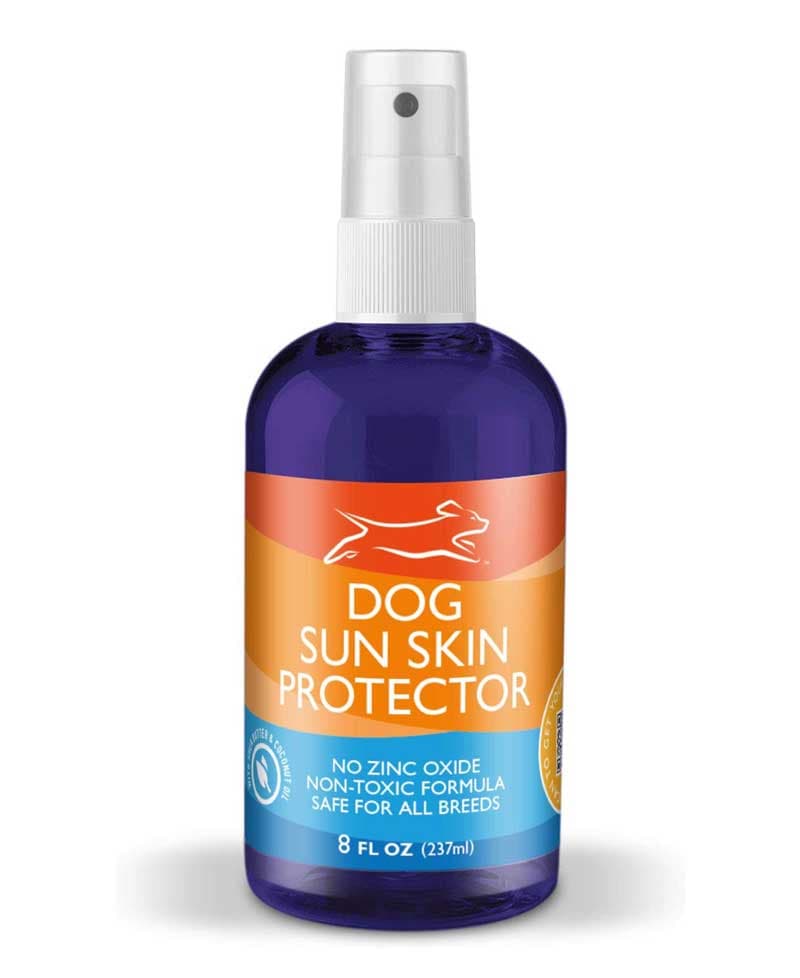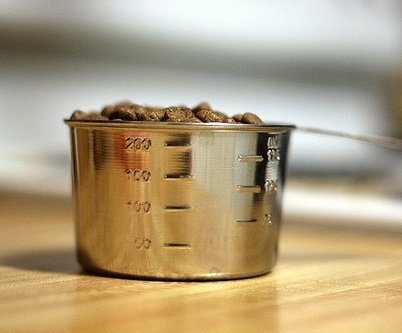
If you’re reading this article, it’s likely that you either own a golden retriever or are thinking about getting one, and for good reason! Golden Retrievers are incredible dogs that are loyal, friendly, devoted, and intelligent which makes them great family dogs. They are the third most popular dog in the United States, behind only the Labrador Retriever and the German Shepherd.
That said, there is one reason why families sometimes reconsider adding a Golden Retriever to their family – their lifespan. In general, Retrievers have a reputation for having a shorter lifespan than some other large breeds but what is this reputation based on? Is it true or have Retrievers just received a bad reputation based on a few owners’ experiences? We’re going to take a closer look at the Golden Retriever’s lifespan and what you may be able to do to extend it. Before adopting any pet, it’s important to remember that you are going to be responsible for it for the rest of its life, including longterm care.
Contents
Bigger Dogs Have Shorter Lifespans
Unfortunately, it is a fact that larger dogs do not live as long as smaller dogs. This does not only apply to Golden Retrievers. Scientists don’t understand the reasons behind this. A study published in the American Naturalist showed that larger dogs age at an accelerated pace and showed that for every 4.4 pounds of body mass, a dog’s life expectancy goes down by one month. While this sounds both incredibly unfair and terrifying, there is still no conclusive explanation as to why this is true. Scientists speculate that larger breeds grow at an accelerated rate from puppy to adult than smaller dogs. This may cause a higher likelihood of abnormal cell growth which can lead to cancer or cause larger dogs to succumb to age-related illnesses quicker than their smaller counterparts.
How Long Do Golden Retrievers Live?

The average Golden Retriever lives between 10 to 12 years old but you’ll hear of many cases of Golden Retrievers dying as young as six to eight as well as living as long as 17 years. Golden Retrievers used to have a longer life expectancy than they do today, primarily because cancer is so common with the breed. Scientists are currently working on a survey meant to examine why the lifespan of the Golden Retrievers has gone down so rapidly. This includes examining the Golden Retrievers genes, health conditions, and environmental factors that might contribute to shortening their lifespans. So far, there have been no conclusive results.
Cancer and the Golden Retriever
Sadly, it is true that Golden Retrievers die from cancer more often than any other breed with 60% of all Golden Retrievers passing away from the disease. As we mentioned, Golden Retrievers did not always have such a short lifespan. In the 1980s, they weren’t considered to be at high risk of cancer but the rate drastically increased in the 1990s. This is why the Morris Animal Foundation began the Golden Retriever Lifetime Study in 2015 which focuses on collecting as much data as possible each year to understand why Golden Retrievers are so prone to cancer.
Golden Retrievers most commonly die from lymphoma, blood, and bone cancer but are more prone than other breeds to other types of cancer as well – even from an early age. Cancer is the number one cause of death of dogs in general aged two and older and there have been cases of Golden Retrievers developing cancer at a younger age.
Other Contributing Factors to The Golden Retriever’s Lifespan
While cancer is responsible for 60% of deaths when it comes to the Golden Retriever, it is not the only health problem that Goldens may have. When it comes to cancer and other health issues, genetics influences the likelihood that they will develop it. If you are purchasing your Golden Retriever from a breeder, asking questions about their lineage helps identify whether or not your Retriever has healthy genes. Although it may not directly contribute to their lifespan, Golden Retrievers are also prone to joint and hip problems. This can cause inflammation and reduce their quality of life significantly. Having bad joints and hips can also be a genetic condition so asking questions about the puppy’s parents in regards to these types of issues is important as well.
Can You Extend Your Golden Retriever’s Lifespan?
Other factors contribute to a shorter lifespan in the Golden Retriever. Sadly, we can’t change our dogs’ genetic makeup. Having said that, did you know that you can take steps to help extend the life of your Golden Retriever? Though there is a lot that’s out of our control when it comes to our pet’s health, we can do everything within our power to keep our Golden Retrievers as healthy as possible for as long as possible.

Let’s take a look at how we may be able to help extend our Golden Retriever’s lifespan and increase the odds that they will be with you into their teen years. Keep in mind that these tips do not only apply to Golden Retrievers – they are fantastic ways to give any dog a longer, healthier life.
- Great nutrition – Keeping on top of your dog’s nutrition is key when it comes to increasing their lifespan. A poor diet increases inflammation in the body which raises the odds of inflammation-related diseases. Illnesses and conditions that are directly caused by poor nutrition in dogs include obesity, pancreatitis, bladder stones, heart disease, and diarrhea. A good rule of thumb is to look for limited-ingredient dog food and avoiding those with first ingredients of meat by-product or meal.
- Lots of exercise – Exercise is important when it comes to maintaining a healthy weight and lifestyle and that’s just as true when it comes to your Golden Retriever as it is for us. There are a variety of weight-related diseases that your Golden is susceptible to, including osteoarthritis, type 2 diabetes, high blood pressure, heart and respiratory disease, and kidney disease. When a dog is obese, their risk of developing cancer also increases.
- Spay and neuter – There are many reasons (besides the obvious) why you should get your Golden spayed or neutered. It is said that spaying or neutering your dog adds up to three years onto their life when you consider the health risks that come along with not fixing them. You eliminate the risk of testicular cancer in males and reduce the risk of females developing mammary cancer and other diseases of the female reproductive organs. Not only does spaying or neutering prevent them from health concerns but it could also keep them safe from other dangerous situations. Hormones can alter the behavior of your Golden, causing them to want to break away from their owners to try to find a mate.
- Brush their teeth – Gingivitis and gum disease can cause serious illness in your Golden. Oral health can also affect the rest of the body, causing dangerous inflammation. Some common illnesses associated with rotten teeth include gum inflammation, pathologic jaw fracture, kidney, liver and heart disease, and loss of weight and appetite. Consult with your vet on how to get your pup’s teeth professionally cleaned and brush regularly at home.
- Regular checkups – Regular veterinary checkups are important for multiple reasons. A vet will hopefully be able to catch any illnesses or diseases that may be present and address them before they progress any further. Your vet will also keep your Golden up to date on vaccinations, which are important for preventing diseases, as well as regularly deworm your Golden to dispose of any possible parasites they have in their system, which can cause serious health issues if left untreated.
- Use sunscreen – This step is a little more specific to Golden Retrievers than certain other breeds as dogs that are light in color are more prone to sunburn. And no, we’re not talking about lathering up your pup’s fur with greasy sunscreen – your pup needs protection around the eyes, ears, tummy, and nose. Ask your vet which sunscreens are safe for dogs or purchase a sunscreen that’s specifically meant for pups – you can find Emmy’s Best Dog Sun Skin Protector Spray and Happy Pet Hot Dog! Sun Protection Spray for Dogs on Amazon.
- Reduce stress – Stress affects your pup’s health in many ways just as it can affect your own health. When your Golden is exposed to stressful situations, the body releases cortisol and adrenaline which can have negative effects on their health in large amounts. Stress can cause both minor and serious health issues in your Golden, such as loss of appetite, weakened immune system, diarrhea, and issues with urination. It can also cause behavioral problems in your dog and exacerbate any illness. In short, keep your Golden Retriever stress free! It will have a positive effect on their health and the best chance to extend the length of their life.
- Avoid exposure to toxic substances – You may think this is a given – after all, why would you expose your pup to substances you know are toxic? But you may be exposing your Golden to toxic substances without even knowing it. The toys you are purchasing for your dog may be full of chemicals due to the way they are manufactured and treated. In fact, a study conducted by ConsumerAffairs.com concluded that a large variety of mainstream toys were found to contain toxic heavy metals, including cadmium, lead, chromium, and other cancer-causing and neurological poisons. Research the companies behind your dog toys before you buy them and make sure they are transparent about their manufacturing process.
- Healthy supplements – Adding healthy supplements to your Golden’s diet can only benefit them and there is a wide variety to choose from. Go for those that will help reduce inflammation overall. Omega 3 fatty acids are great as well as glucosamine and chondroitin. That said, it’s best to consult with your vet on what they think would best benefit your Golden, including the dosage you should give them.
Conclusion
We can’t deny that Golden Retrievers have a shorter lifespan than most dogs. That 60% of Golden deaths are caused by cancer and that they get cancer more than any other dog breed is something to consider before getting one. Unless you feel that you would not be able to take care of your dog in the long term, though, this is no reason to deter you from getting one. The Golden Retriever is an amazing breed. They are some of the friendliest, most loyal dogs on the planet. Plus, there are plenty of steps you can take to give your dog the best chance at a longer life. We hope our Golden Retriever Lifespan Guide has given you both new insights and some ideas on how to best care for your furry best friend.
I grew up in a household that was filled with animals. I believe that my fate as a dog-loving person was sealed in early childhood since my parents owned several dogs of varying sizes and breeds. There was no choice but to take care of and learn about dog habits and the best animal care practices — otherwise, I’d be clueless about how to go about the creatures I was surrounded by day and night.
As a life-long puppy lover, I know a thing or two about dogs and how to go about caring for them in the best way possible. Although I’m not a professionally trained dog behaviorist, trainer, or veterinarian, all of my knowledge and experience with canines comes from a place of love and a deep-rooted passion for dogs and animals in general.
Seeing as dogs kept me company throughout every stage of my life, I decided to follow a different path in my academic life and obtained a Bachelor’s and Master’s degrees in Marketing Management and Digital Advertising, which ultimately allowed me to combine my professional training and personal experience by creating the ultimate dog lover’s resource website! Along with my husband, Dave, I run MySweetPuppy for like-minded dog lovers who want to have a single, clear, and reliable information source about anything and everything related to dogs and their well-being.





